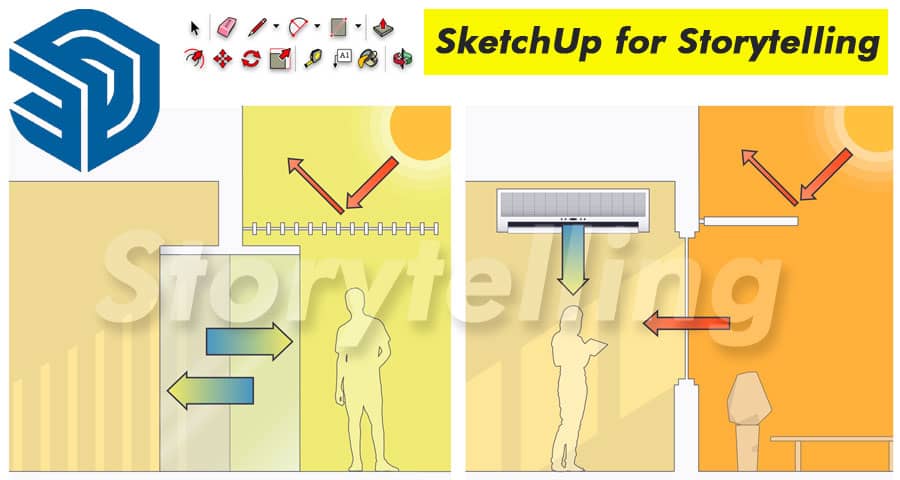In the digital age, captivating storytelling is paramount for businesses and individuals alike to engage their audience effectively. Amidst a plethora of tools available, SketchUp emerges as a versatile and powerful platform that transcends traditional storytelling methods. With its intuitive interface and robust features, SketchUp empowers users to craft immersive narratives that leave a lasting impact.
Understanding SketchUp: A Brief Overview
SketchUp, developed by Trimble Inc., is a leading 3D modeling software renowned for its accessibility and flexibility. Originally created for architects and designers, it has evolved into a multifaceted tool embraced by diverse industries, including film, gaming, education, and advertising. Its user-friendly interface, coupled with a vast library of pre-built models and plugins, democratizes the creation of 3D content, making it accessible to beginners and professionals alike.
The Art of Storytelling with SketchUp
- Visualizing Ideas in Three Dimensions: Storytelling often hinges on the ability to convey ideas and concepts visually. SketchUp’s 3D modeling capabilities offer unparalleled freedom in bringing imagination to life. Whether it’s designing architectural landscapes, conceptualizing product prototypes, or constructing virtual sets for film production, SketchUp provides a dynamic canvas where ideas thrive in three dimensions.
- Seamless Integration with Other Creative Tools: One of SketchUp’s strengths lies in its seamless integration with other creative software. Whether you’re incorporating Adobe Photoshop for texture mapping, Adobe Premiere Pro for video editing, or Unity for game development, SketchUp facilitates a smooth workflow, allowing storytellers to leverage the full spectrum of creative tools at their disposal.
- Engaging Audiences with Interactive Experiences: In today’s digital landscape, audience engagement is paramount. SketchUp enables storytellers to create interactive experiences that captivate and immerse viewers. By integrating animations, virtual tours, and interactive elements into 3D models, creators can transcend passive consumption, fostering meaningful engagement and dialogue with their audience.
Unlocking the Potential: Practical Applications of SketchUp in Storytelling
- Architectural Visualization and Urban Planning: For architects and urban planners, SketchUp serves as a cornerstone for visualizing designs and communicating spatial concepts. From conceptual sketches to detailed renderings, SketchUp streamlines the architectural design process, enabling stakeholders to envision and evaluate projects with unprecedented clarity.
- Educational Tools and Simulations: In the realm of education, SketchUp empowers educators to create dynamic learning experiences that resonate with students. Whether it’s simulating historical landmarks, dissecting complex biological structures, or exploring mathematical concepts in three dimensions, SketchUp enriches the learning process, fostering curiosity and engagement in learners of all ages.
- Film and Animation Production: In the realm of film and animation, SketchUp serves as a versatile tool for pre-visualization and set design. By creating detailed 3D models of sets, props, and characters, filmmakers can visualize scenes, plan camera movements, and iterate on creative ideas with precision and efficiency, ultimately enhancing the storytelling process.
For more information, please watch the following video tutorial
Conclusion: Elevate Your Storytelling with SketchUp
In a world inundated with content, compelling storytelling is the key to standing out and making an impact. With its intuitive interface, robust features, and limitless creative potential, SketchUp empowers storytellers to transcend traditional boundaries and craft narratives that resonate with audiences on a profound level. Whether you’re an architect, educator, filmmaker, or creative professional, SketchUp offers a versatile canvas where ideas flourish, imagination thrives, and stories come to life.


